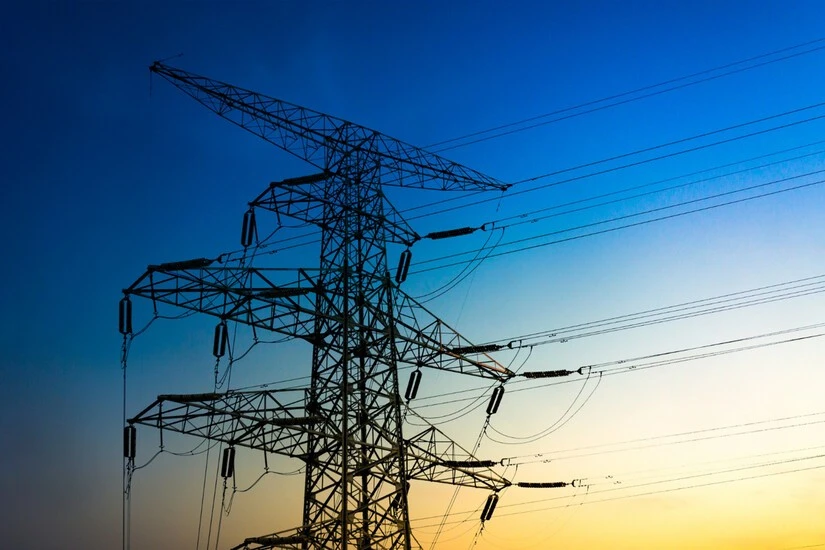IEA Report Confirms Irish Retail Electricity Prices Are Three Times Wholesale Cost

A new report from the International Energy Agency (IEA) has found that the energy component of residential electricity prices in Ireland is a staggering three times higher than the wholesale cost paid by suppliers. This enormous gap is the largest disparity identified among the advanced economies studied, confirming that Irish households are paying disproportionately high prices.
IEA Report Confirms Retail Prices Are Three Times Wholesale Cost
The IEA, which provides policy recommendations and data analysis on the global energy sector, specifically noted in its latest report.
Irish retail prices have failed to adequately reflect the significant declines in wholesale energy costs seen since the peak of the energy crisis.
The report states that while wholesale prices have fallen substantially in 2023 and 2024, "many utilities in these countries only partially reflected the subsequent wholesale price declines."
It added that this disparity was the largest in Ireland, "with the energy component of retail prices three times higher than wholesale prices."
This finding has led to widespread accusations of "price gouging" from political figures, with parties calling for immediate Dáil debates and government intervention to force electricity suppliers to pass on the savings to customers.
The graph below charts the evolution in price of electricity on the wholesale market, highlighting the stark contrast between the falling cost of power and the stubbornly high retail prices:
The IEA report's core finding is the disconnect between the trend shown here (downward) and the final price paid by consumers (persistently high):
Wholesale Price Index - Electricity (Base: Year 2021 as 100)
Index
Source: CSO.ie .
Electricity Bills Costing You Too Much in 2026?
Talk to us here at Selectra and we can help you make the right choice and save money!
Call Today to Switch Energy Providers and Save On Your Energy Bills
We're currently closed but please leave us your number and we'll give you a free call as soon as we're open!
The Reasons Behind the Unprecedented Disparity
While the broader energy market has seen a general lowering of fuel costs, the issue in Ireland is a failure to translate these savings to the final bill.
The primary factor cited in the wake of the IEA report is the slow speed at which Irish suppliers have lowered their consumer tariffs.
Unlike some European counterparts, Irish energy companies have been criticised for keeping retail prices high even as their cost of acquiring power on the wholesale market has dropped.
However, underlying structural issues also contribute to Ireland having some of the highest residential electricity prices in the world:
- Heavy Reliance on Gas: Ireland relies on gas for a large portion of its electricity generation, making it highly exposed to volatile international gas prices.
- High Network Costs: Due to a relatively dispersed population with many one-off rural homes, the cost of maintaining and upgrading the national electricity grid (a significant component of the final bill) is disproportionately high.
- Weak Interconnectivity: As an island nation, Ireland has limited interconnector capacity with other countries, restricting its ability to import cheaper electricity when needed.
The IEA report's specific finding on the 3x markup suggests that even when accounting for these structural charges, the energy component itself is being sold at an excessive rate.
What Does the 'Triple Cost' Mean for My Electricity Bills?
The most immediate consequence of the IEA's finding is that Irish households are significantly overpaying for the electricity they consume.
While wholesale prices typically account for a substantial portion (around 55-60%) of the final bill, the report indicates that the markup on this component is far too high.
The final bill is made up of:
- Electricity generation (wholesale cost)
- Transmission and distribution costs
- Supplier charges and profits
- Government taxes and levies
- VAT
Ireland Electricity Unit Price Components
The concept of "hedging" strategies, where suppliers buy power in advance to fix prices, has often been cited to explain the time lag in price reductions.
However, critics argue that this strategy is now being used to protect bumper profits rather than consumer interests.
Therefore, while a price cap has been ruled out by the government, the pressure on suppliers to reduce tariffs is now immense. Consumers can, however, take immediate action to mitigate the high costs.
What Can I Do About Increasing Electricity Prices?
In light of these developments, Selectra urges electricity customers to manage their energy consumption and explore all available options to mitigate the impact of rising costs:
| Strategy | What It Involves | Potential Benefits |
|---|---|---|
| Switch Suppliers | Compare offers from different electricity providers and switch to a new one, especially if you're out of contract. | Significant discounts (often 30% or more) for new customers in their first year. |
| Optimize Tariff | If you're a customer of either supplier, ensure you're on a discounted contract. If you have a smart meter, consider switching to a time-of-use tariff. | Potential savings on night-time usage and overall reduced rates. |
| Actively Manage Usage | Implement energy-saving habits like unplugging electronics, using energy-efficient appliances, optimising heating/cooling, and utilising natural light. | Reduced overall electricity consumption, leading to lower monthly bills. |
| Utilise SEAI Grants | Avail of government-backed schemes (e.g., from the Sustainable Energy Authority of Ireland) for home insulation, window upgrades, or heat pump installation to improve your home's Building Energy Rating (BER). | Massive long-term reduction in energy demand (gas and electricity) and improved home comfort, potentially saving hundreds of Euro annually. |
Looking For Other Ways to Reduce Your Energy Bill?
Stay up to date with the latest news from Selectra to learn how to lower your energy bills or find a cheaper electricity provider.

